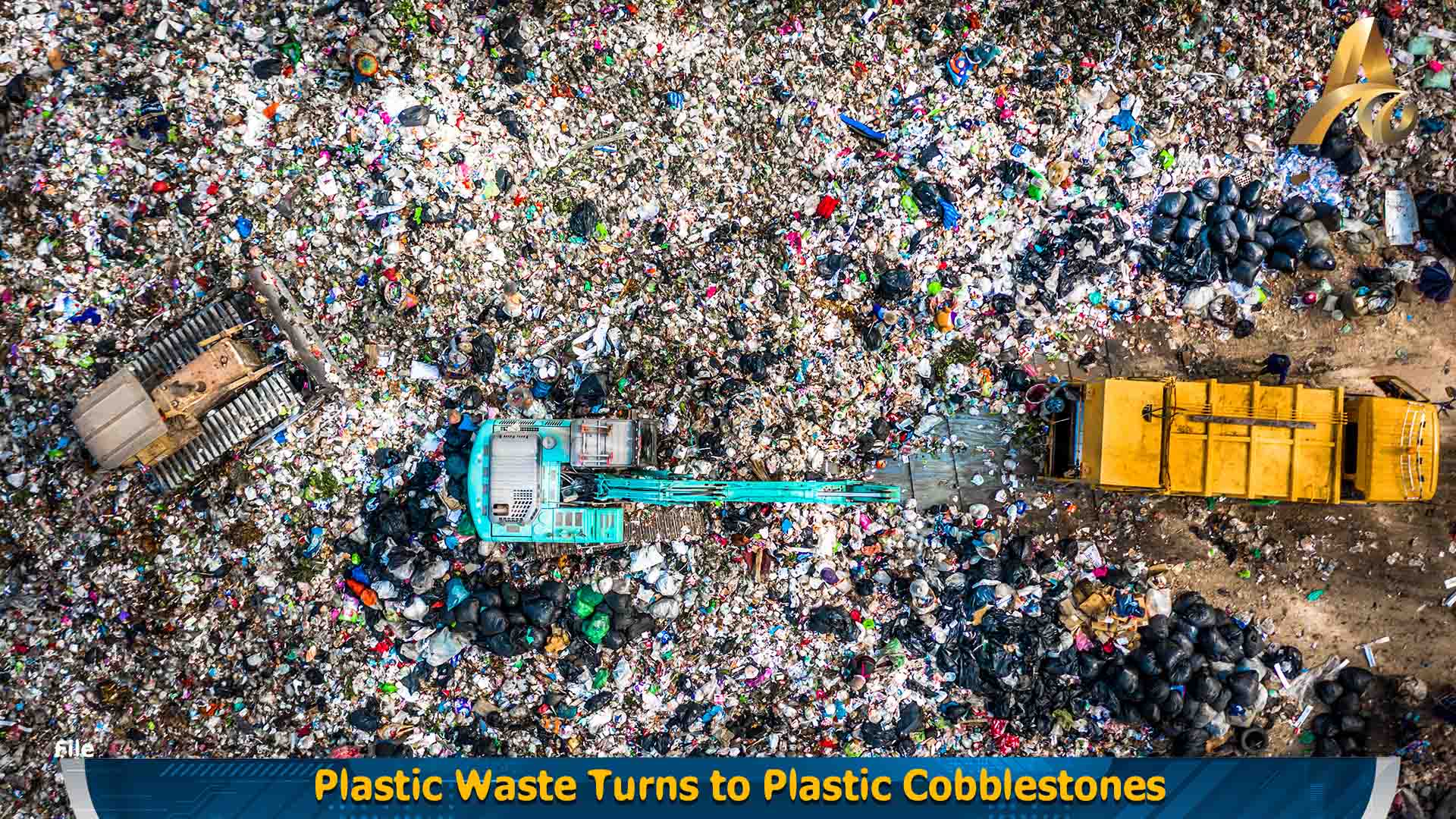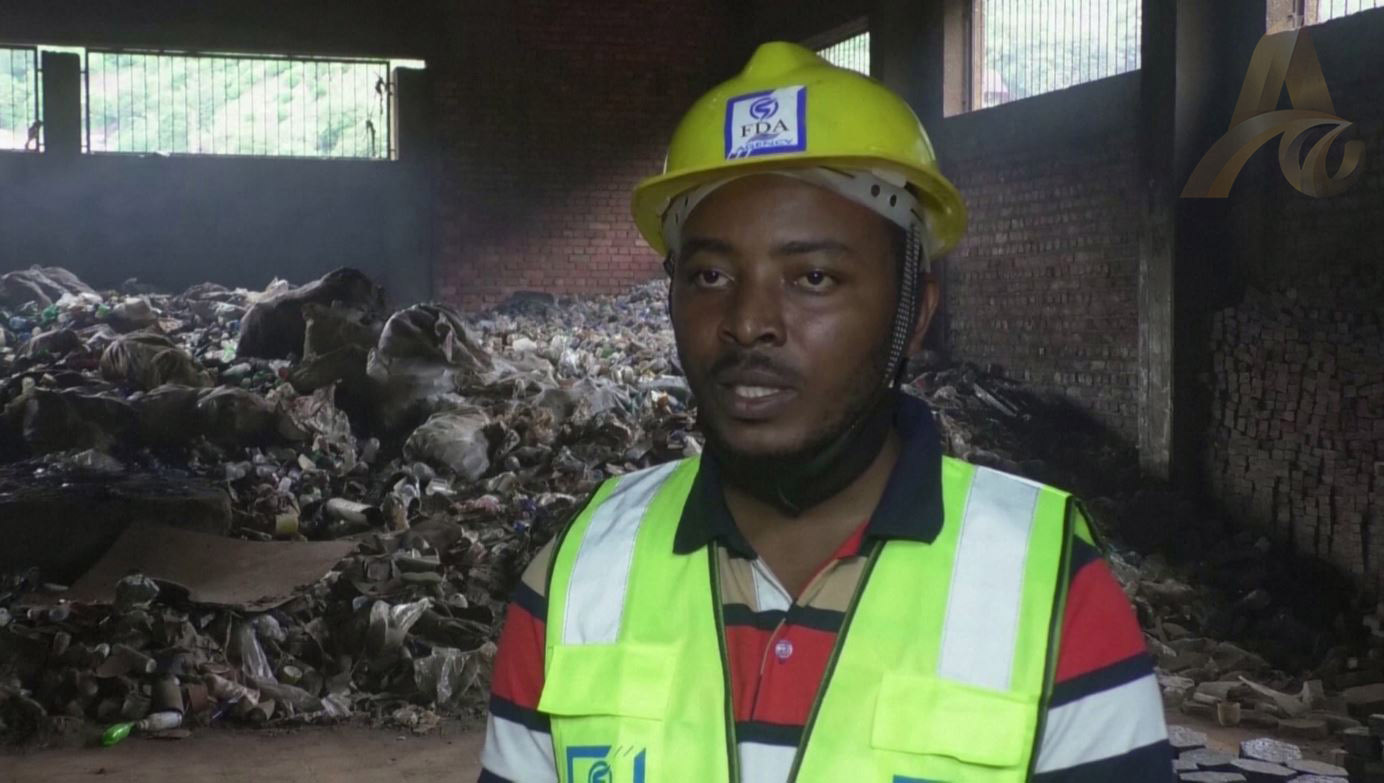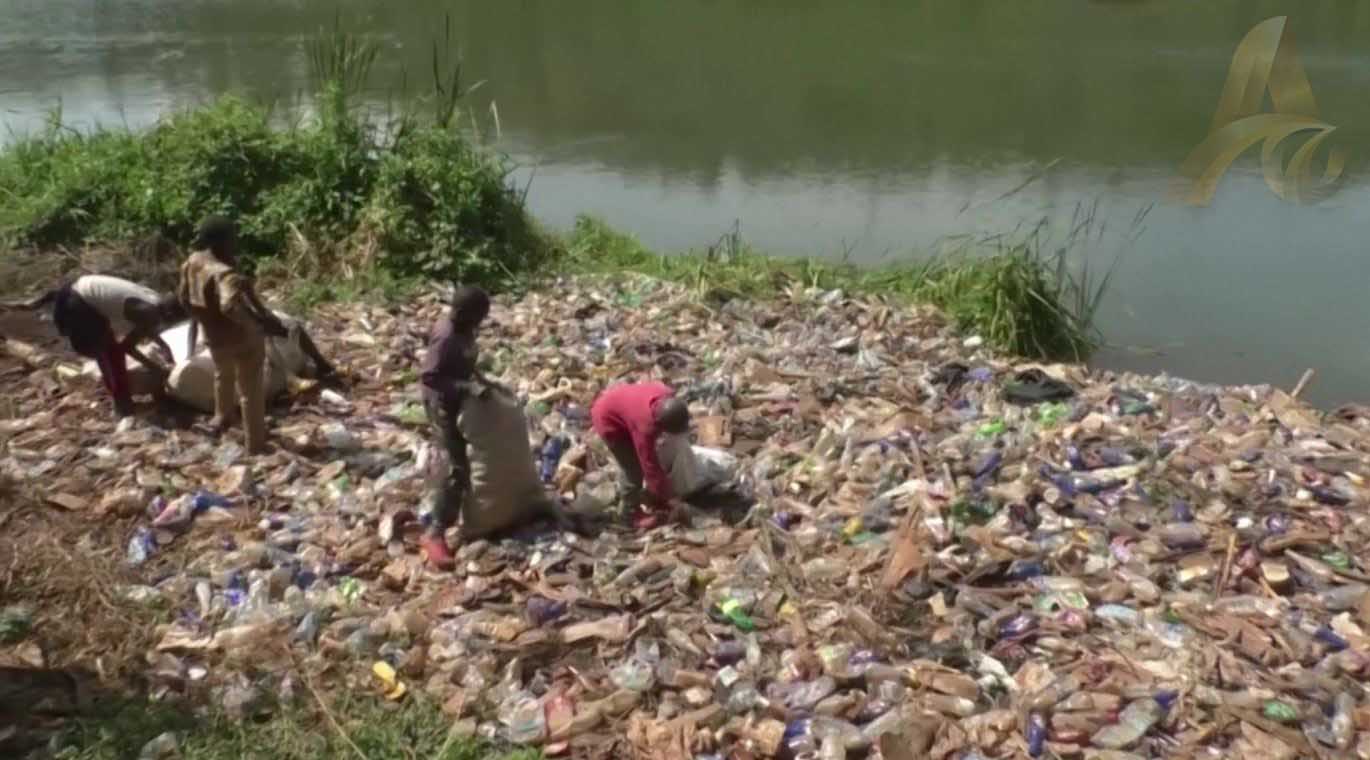INTERNATIONAL: In Bukavu, the eastern Democratic Republic of Congo, the thousands of plastic bottles thrown into the Rusizi river routinely clog the hydropower station's turbines, shutting it down for months at a time and plunging the city into darkness.
But for Elie Mapenzi Matabaro, the city's plastic problem is an asset, allowing him to both make money and create jobs for young people by transforming the bottles and other city waste into cheap, hard-wearing paving slabs that grace driveways and forecourts across the city.
"There was no system for the protection of the environment or waste management in Bukavu before. We want to make sure that there is a proper waste management system, as well as ensure the sanitation of the city of Bukavu, as well as Lake Kivu and the Rusizi river," Mapenzi said.
The city's mayor Meschack Bilubi Ulengabo said Bukavu has no proper dump for its approximately 1.6 million residents, a situation that is far from unique in Africa. The population is also not very educated on the real consequences of waste management.
The United Nations Environment Program estimates that 70–80%of the Municipal Solid Waste generated across the continent is recyclable, yet only 4% of MSW is currently recycled.
Every day, Mapenzi's trash collectors deposit mountains of plastic at the factory, where it's melted down and scraped into hexagonal metal molds.
Mapenzi says the initiative not only helps keep the city clean but has also created jobs.
"We work with both men and women at various levels. There are those who work in collecting the plastic waste, those who process the plastic waste, and those who work on the marketing side. This has also allowed us to create jobs and something that benefits the community at large,” he said.
"The advantage of these cobblestones is that they are less expensive compared to cement cobblestones that we used before. These recycled cobblestones are also easier to clean, you just need water and soap. They also help us protect the environment," said Obedi Erodia, who has paved his driveway in red and black tessellating blocks.
At the hydropower station, men with scuba gear dive to clear the turbine inlets of trash, while others in boats gather the waste floating on the surface. A trash blockage has jammed one of the turbines for the last two and a half months, leading the load-shedding across the city, said Lievin Chizungu from the National Society of Electricity, which runs the plant.
"Most of this plastic waste mainly comes from households in the city. There are factories that produce bottled water, but unfortunately, there are no dumps and people throw waste in the gutters and it just comes down here to the dam, so it comes mainly from domestic consumption in the city," Chizungu said.
Mapenzi has struck a deal with SNEL to take away the plastics.
























